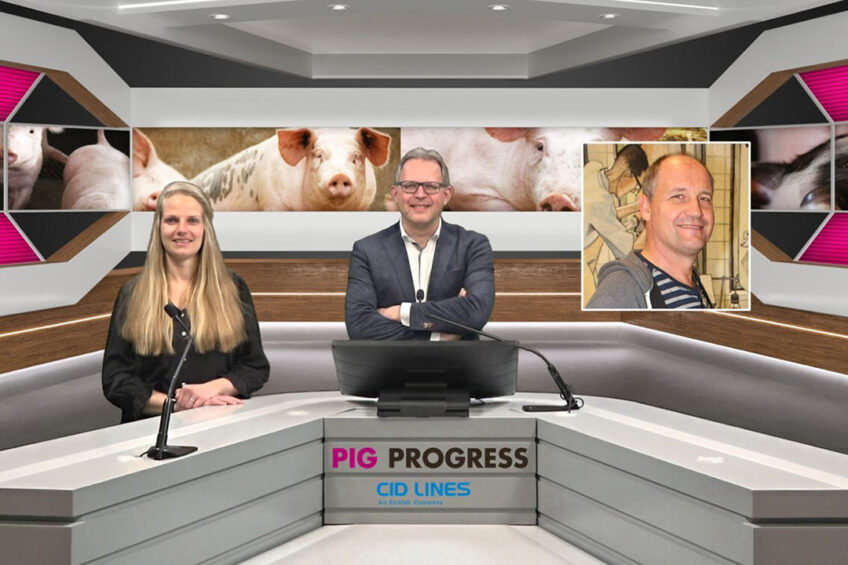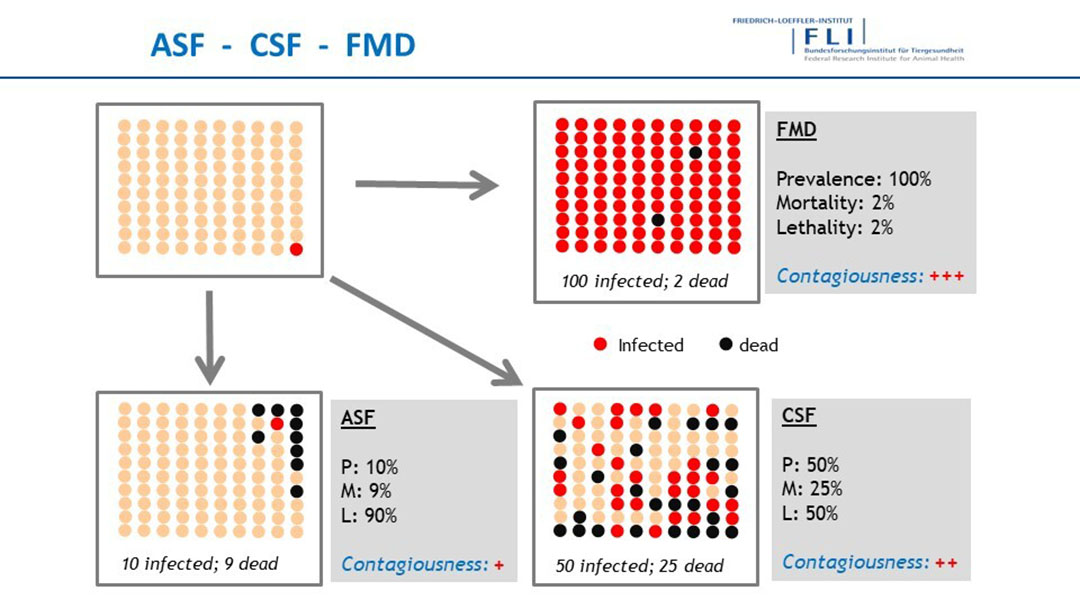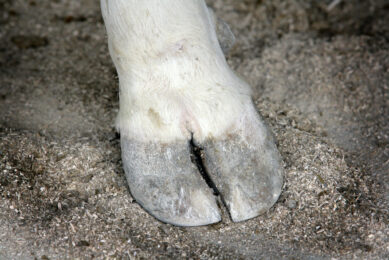On-demand: Webinar on preventing ASF

“ASF in domestic pigs can be effectively controlled through good biosecurity.” That conclusion, drawn by Dr Klaus Depner of the Friedrich-Loeffler-Institut (FLI) in Germany, was the core message of a recent webinar on African Swine Fever.
The webinar was broadcast by Pig Progress in cooperation with Cid Lines, an Ecolab company, on Wednesday, April 6. The webinar is now available for re-viewing on demand.
Dr Depner kicked off the webinar with a comprehensive overview of what African Swine Fever virus is exactly, sharing the latest insights into how the virus spreads – and how it does not.

The still above illustrates well Dr Depner’s message. Compared to Classical Swine Fever (CSF, a.k.a. hog cholera) and Foot-and-Mouth Disease (FMD), ASF has a low contagiousness. Yet it has a severe course and high impact.
Dr Depner pointed to the role humans play in the spread of the virus. He also added that as long as there is no vaccination, biosecurity is the best way to get the virus under control.
Learning to deal with biosecurity shortcomings
The next speaker was Elien Claeys, product manager global animal health at Cid Lines. Her key message revolved around the fact that biosecurity shortcomings are critical for virus introduction on farms. She summed up a range of different aspects where biosecurity flaws could occur, e.g. at the purchase of pigs, with feed and water, entrance hygiene, vermin, carcass disposal, materials, transport, depopulation and cleaning and disinfection.
She advised to keep 4 key words in mind:
- All the aforementioned different routes are important;
- Clear and visible hygiene rules and instructions are essential;
- Specific materials for both farms and barns are needed;
- Limited movement on farms, both relating to people as well as transports.











